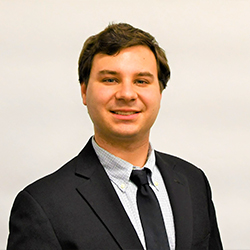Reactive Root Cause Analysis for Turbines: Best Practices in High-Stakes Disputes
Explore advanced NDT techniques used in turbine failure investigations, including borescope inspections, SEM, EDS, and IR imaging, and learn how they support maintenance, root cause analysis, and dispute resolution
Member: Free
Credit Info
- Contact Hours: 1
- IACET CEUs: 0.1
- Valid for ASNT Level III recertification: Yes
Original air date: 25 June 2025
Course Overview
Failures in gas and steam turbines can result in significant financial and operational impacts, often leading to complex disputes over causation and liability. In these high-stakes situations, nondestructive testing (NDT) methods play a critical role in both proactive maintenance strategies and reactive root cause analyses. This webinar will explore how advanced NDT techniques, including borescope inspections, scanning electron microscopy (SEM), energy dispersive spectroscopy (EDS), and infrared (IR) thermal imaging, are applied to turbine failure investigations. Participants will learn how integrating NDT data with predictive analysis tools enhances reliability assessments and strengthens incident resolution strategies. Real-world case studies will illustrate best practices, lessons learned, and the critical role of NDT in navigating uncertainty when inputs and outputs are imperfect.
Upon Completion, Learners Will Be Able To:
- Understand how nondestructive testing methods support both proactive incident prevention and reactive root cause analyses for turbine systems.
- Explore the applications and benefits of borescope inspections, scanning electron microscopy, energy dispersive spectroscopy, and infrared thermal imaging in turbine failure investigations.
- Learn how to integrate NDT findings with risk analysis and damage tolerance design methods to inform incident resolution and performance management.
- Analyze case studies highlighting the role of NDT in steam and gas turbine failure investigations, with a focus on technical insights and dispute mitigation.
Meet the Speaker

Richard Hollenbach, PhD
Richard Hollenbach is a Senior Engineer in Thermal Sciences at Exponent Consulting, specializing in thermal-fluid systems, turbomachinery, aerodynamics, vibrations, and fluid-structure interaction. With a background in mechanical and aerospace engineering, he investigates performance and failures through experimental and computational analysis. Richard has conducted inspections across residential and large-scale industrial facilities, supporting domestic litigation and international arbitration with detailed technical reports and expert analysis grounded in physics and mathematical modeling.
Questions? Contact us at education@asnt.org